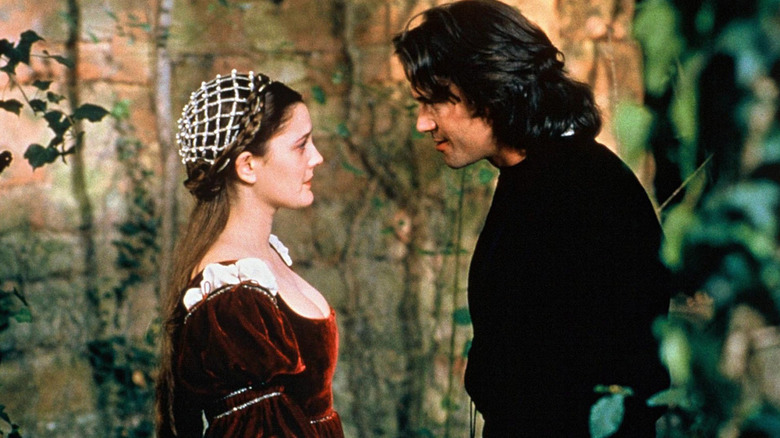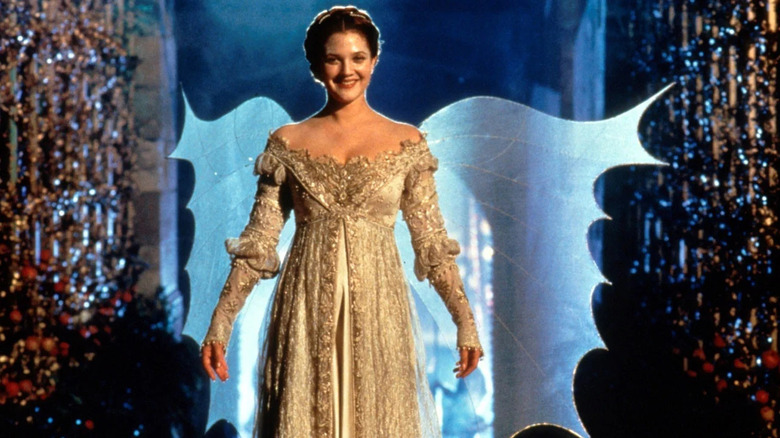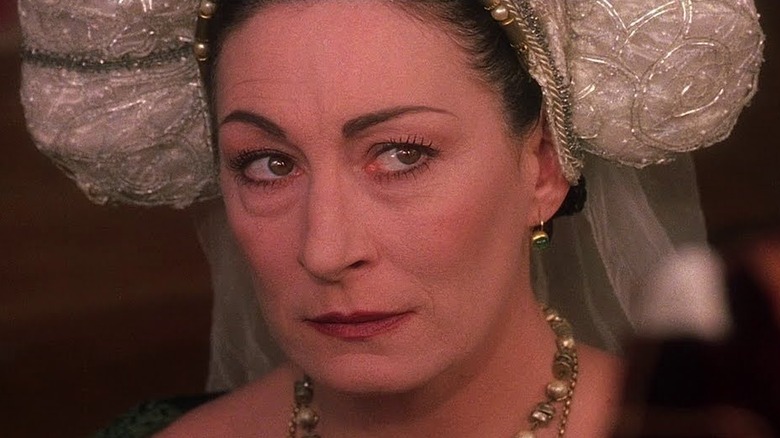The Daily Stream: Ever After Is A Cinderella Story With A Self-Rescuing Princess
(Welcome to The Daily Stream, an ongoing series in which the /Film team shares what they've been watching, why it's worth checking out, and where you can stream it.)
The Movie: "Ever After"
Where You Can Stream It: Starz
The Pitch: Right around the time when Disney's princesses started to get some agency in films like "Beauty and the Beast" and "Mulan," another fairy tale princess was changing the genre in live-action. "Ever After" starred Drew Barrymore as a more realistic version of Cinderella, one whose whole characterization isn't just "lovely," and who does more than get a coach turned into a pumpkin for her by a magical fairy godmother and some singing mice.
The film is framed around Leonardo Da Vinci's famous portrait "Head of a Woman" from 1508. In the 19th century, the Brothers Grimm are summoned by an older woman who has it in her possession. She isn't happy with their version of the Cinderella tale, which is full of supernatural elements. She says she has the actual version, a story about Danielle du Barbarac, the woman who features in the picture (in this film, not in real life). She begins to tell the tale, which is all based on "reality."
Barrymore plays Danielle, a young woman in France in the 16th century whose father has died. She's been abused by her stepmother Rodmilla (Anjelica Huston), who spends all her father's money spoiling her two daughters Marguerite (Megan Dodds) and Jacqueline (Melanie Lynskey) instead of her. Danielle is no shrinking violet, however. This young woman reads "Utopia," knows politics, and is a fighter for the rights of workers.
Why it's essential viewing
One day, Danielle runs into Prince Henry (Dougray Scott), while throwing something at his head in a sort of violent meet-cute. Henry, it seems, is running from an arranged marriage discussion with his royal parents, and gives her gold to keep quiet about it. She uses that gold to buy back a servant that her stepmother has sold. He's impressed, of course, when he finds her there, yelling at the slaver who has the servant. When he asks her name, however, she lies and says she's a comtesse.
You can see where this is going. You know what happens in "Cinderella." I mean, the film is called "Ever After." However, it's not what I was expecting when I went to see this in the theater. Not only does the film take out the magic and the fairy godmother, but it made the hero into a self-sufficient woman. Danielle's "fairy godmother" is really an "artist grandfather" in the form of Leonardo Da Vinci (Patrick Godfrey), who is serving as the court artist in France. (He was there at the court, but not at the time this is set.) He makes her dress and wings instead of turning her rags into something magical. The king and prince are real people, though the eventual Henry II didn't marry a girl with wings. He married Catherine de Medici, and it wasn't a happy marriage. In this film, however, he gets one.
'The point, gentlemen, is that they lived'
I have such a soft spot for "Ever After." Aside from the attitudinal anachronisms (and the very 1998 body glitter that Barrymore wears in the masquerade scene), it's still very much a simple fairy tale. It's not trying to be anything that it's not, nor does it overcomplicate the story. "Ever After" shows us a version of the tale that still has two young people falling in love. There is still a glass slipper. He's still smitten with her beauty ... but he's also in love with her intelligence, and her willingness to fight for what she believes in.
I look at films like this as comfort food these days. I love a good drama and a deep political story, or a superhero universe — which is a good thing, because that's most of what we get now. I just love something soothing sometimes, and this film is absolutely that. The villains end up punished, but not too harshly. The heroes win. Melanie Lynskey exists in it, and is a delight. Anjelica Huston wears hats that defy explanation. There is a line between good and evil, and intelligence and kindness win the day.
Now we have a zillion versions of fairy tales with strong heroines in books, on TV, and in film, but we didn't back then. Going in to watch a film where I thought the princess would be rescued by someone else, only to have her help herself was a revelation at the time. It still felt like a fireside tale, but one that maybe could have sort of, kind of happened.
If you do watch though, I regret to inform you that you'll want to dig out the body glitter. I'm sorry. It can't be helped.


